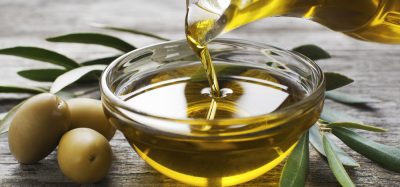Are vegetable oils the biggest food fraud risk?
- Like
- Digg
- Del
- Tumblr
- VKontakte
- Buffer
- Love This
- Odnoklassniki
- Meneame
- Blogger
- Amazon
- Yahoo Mail
- Gmail
- AOL
- Newsvine
- HackerNews
- Evernote
- MySpace
- Mail.ru
- Viadeo
- Line
- Comments
- Yummly
- SMS
- Viber
- Telegram
- Subscribe
- Skype
- Facebook Messenger
- Kakao
- LiveJournal
- Yammer
- Edgar
- Fintel
- Mix
- Instapaper
- Copy Link
Posted: 24 July 2024 | Professor Chris Elliott | No comments yet
Professor Chris Elliott delves into why vegetable oils are particularly prone to food fraud, examining historical cases, current vulnerabilities, and potential solutions.


By Professor Chris Elliott
A question that I and others who work and study food fraud are often asked is “What is the biggest risk commodity in terms of fraud?”
Different experts will have different opinions at different times of course depending on what’s happening in terms of commodity availability, prices, complexity of supply chains and the degree of processing undertaken.
In my opinion, vegetable oils will always be at top of that list, or at least very near the top. Why is this? First of all, history tells us that multiple cases of food fraud have occurred in oils which have led to many cases of human illness and death. In an excellent review article recently published which was written by one of my PhD students details of 36 different incidents involving vegetable oil fraud and contamination was reported. These resulted in many hundreds of deaths, some of which were children. The student goes on to describe many other examples of vegetable oil fraud that have been reported which, while not linked with illnesses, are perpetrated by those who wish to cheat consumers.
The second reason why vegetable oils are so susceptible to fraud is that the oils themselves can be relatively easily blended with cheaper oils or indeed fully substituted during the processing stages. Fraudsters will work hard to try and get the colour of the oil correct so as not to raise any alarm bells from buyers.
The third reason is that we are experiencing more and more issues of shortages and changes in legislation. The invasion of Ukraine, the world’s largest producer of sunflower oil has massively impacted the agriculture sector and export markets. In addition, the climate crisis has led to greatly reduced outputs of olive oil. Both these factors have allowed for big price hikes in these types of oils. It is not surprising that a very recent report of large-scale fraud in olive oil was reported where Italian authorities confiscated almost $1 million in fake olive oil.
While not specifically mentioned in the article, I believe that it is likely that organised crime gangs were involved in this particular scam. The ban on palm oil linked to deforestation while intended to help protect against environmental destruction is likely to give further opportunities for fraud.
Another very disturbing report of potentially toxic vegetable oils reaching the market was reported in China recently. It is claimed that a major transportation company was using tankers which had previously transported toxic chemicals were being used to transport cooking oil without being cleaned properly. This was described as an ‘open secret’ in the industry as the practise was so widespread. The Chinese authorities are now investigating the reports as the scandal is growing in China due to the reports going viral on various social media platforms.
The scandal has now spread to Australia as they import cooking oils from China. Food safety fears now abound in both China and Australia. I await more information to find out if the reports are true and if so how could such widespread practises go unnoticed by the authorities. China has worked so hard to restore consumer confidence after the 2008 melamine, but this scandal could have another dramatic impact on this fragile trust in the China food system. I will be monitoring this scandal very closely as new information becomes available.
In terms of what business should do to try and protect themselves and their customers from purchasing adulterated or mislabelled vegetables oils there is a clear course of action. Understanding the degree of risk with particular vegetable oil commodities and developing robust mitigation plans is essential. These involve conducting fit for purpose fraud detection audits and robust product testing programmes. Both mean additional costs to their business but in my view these are essential to protect their own reputations and the safety of all consumers.
It is always hard to know what’s around the next corner but a breaking scandal on vegetable oils is never that far away.
Related topics
Food Fraud, Food Safety, Regulation & Legislation, Supply chain, Traceability, Trade & Economy, World Food







